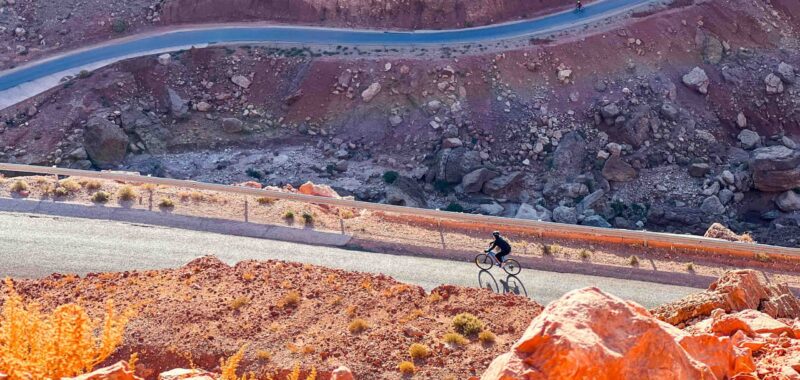Famished after long cycling rides, we often feasted at carefully chosen, small, locally owned restaurants. On a rest day in Chefchaouen, we embarked on a stunning hike to a local olive and herbs farm up in the mountains. In Fez, we visited a local women’s cooperative to see ceramics (like the famous tajine) in the making. In the High Atlas, our accommodation was a family-owned mountain gîte—a traditional guesthouse with a cave room for cold storage of vegetables and a stone oven to bake fresh bread.
When we visited their hometown of Boughrare, Mohamed and Rashid invited us to meet their family. I learned that Mohamed’s father—like many generations before him—continues to live a nomadic life, spending long months in a mountain cave where he tends his herd of sheep and goats. But Mohamed enjoyed studying and felt like he wasn’t cut out for the harshness of his forefathers’ lives. He studied biology, decided on an adventurous life, and returned to his High Atlas village to lead treks locally.
As a lead guide with Intrepid Travel, he has the opportunity to meet people from around the world, cycle frequently across the country, and go on his own travels in between work trips. At heart, he’s still a nomad, but of a different kind.
As a travel writer, I’ve often wondered where the balance lies. On the one hand, tourism contributes to climate change and often overdraws local resources like water. But on the other, it can offer remote communities—who might no longer be able to sustain their once self-sufficient lifestyle due to the impact of climate change—the opportunity to build alternate livelihoods through tourism. Pedaling through Morocco was a reminder of this complex reality, and a chance to observe the uplifting power of conscious travel.

